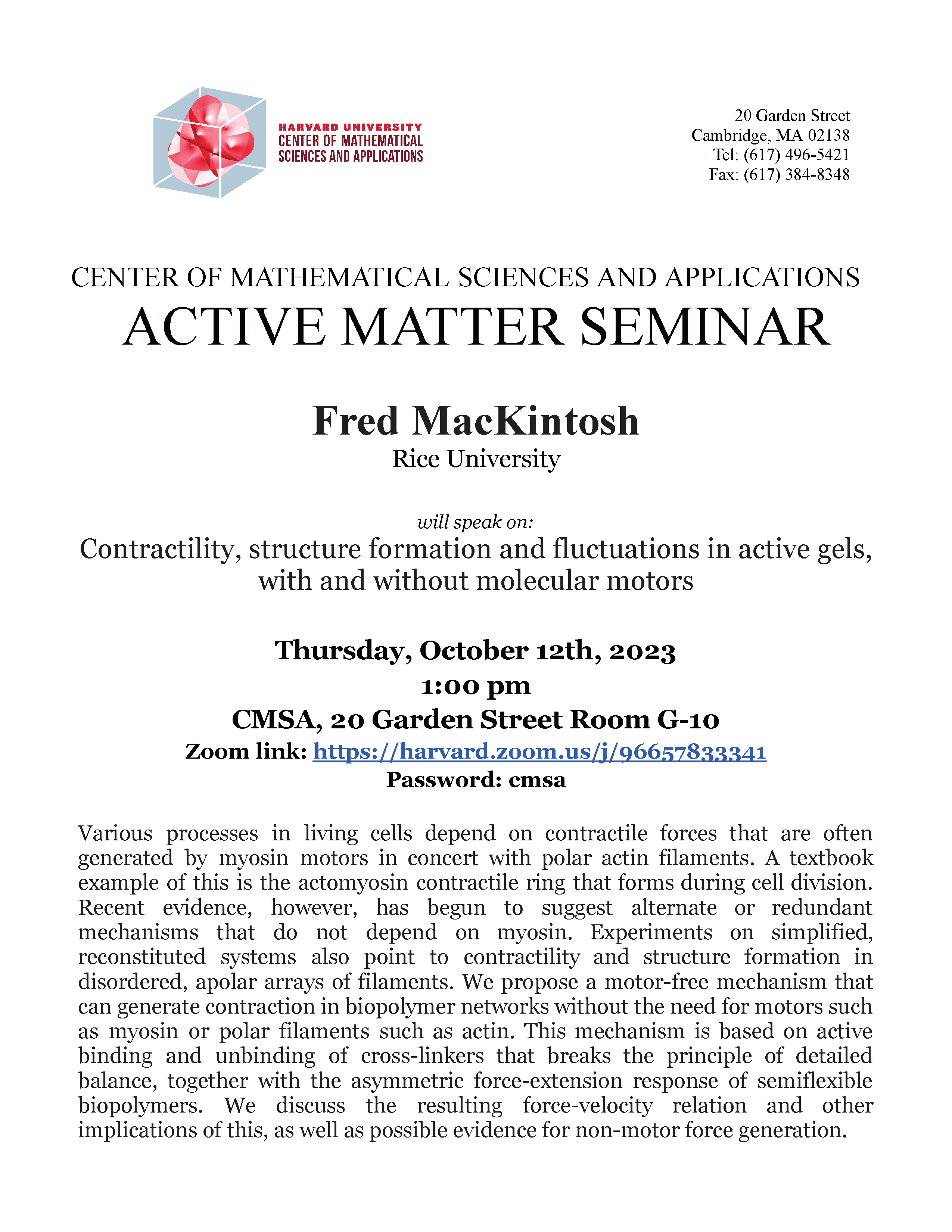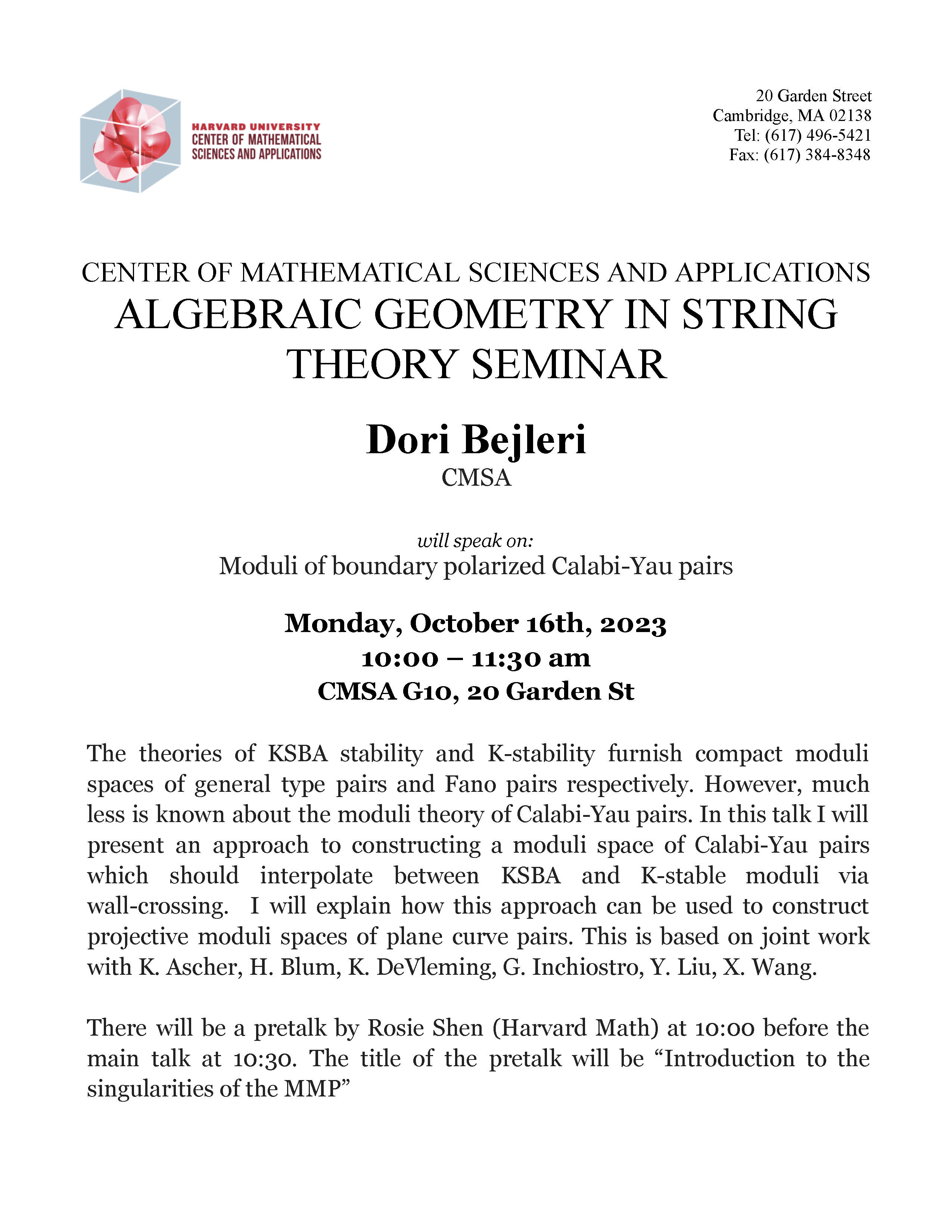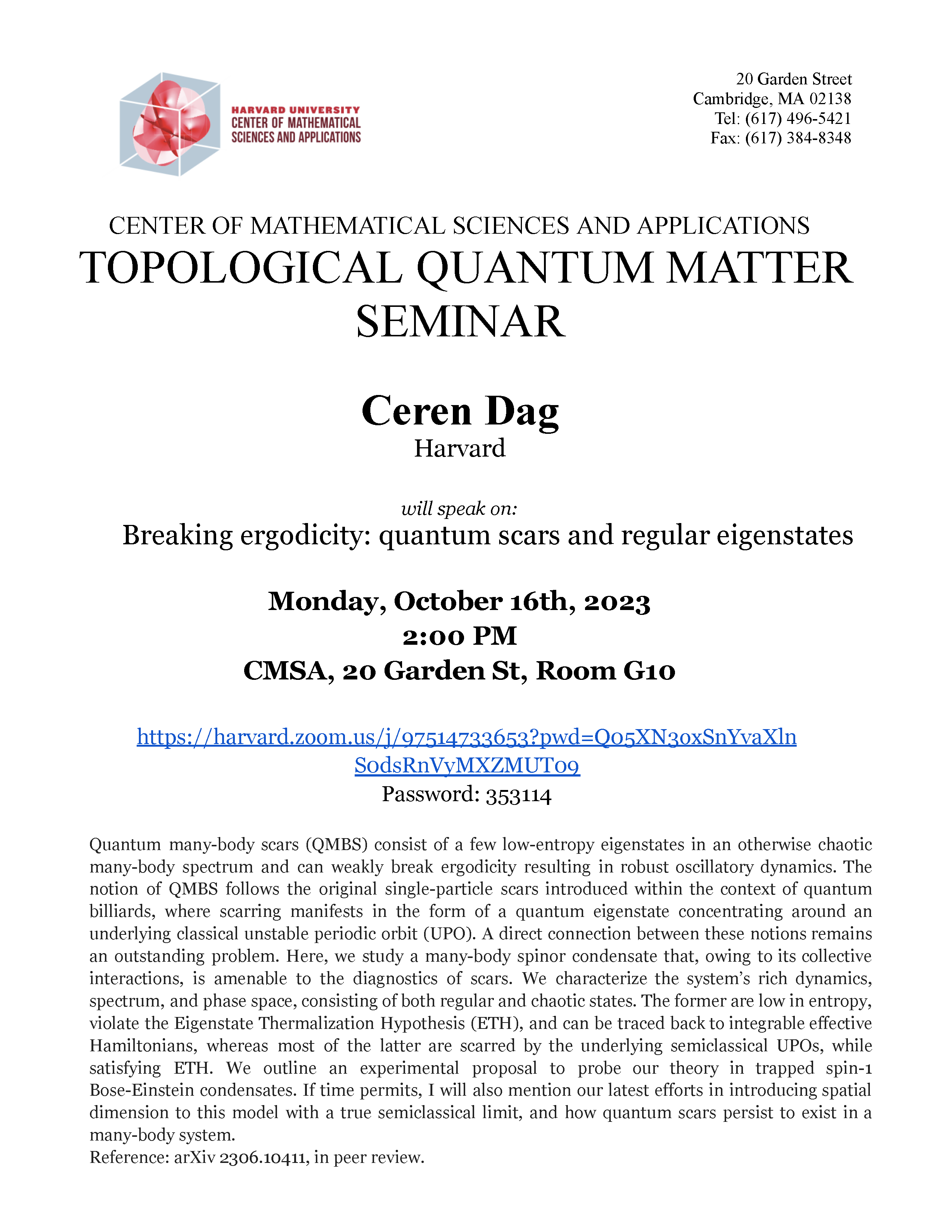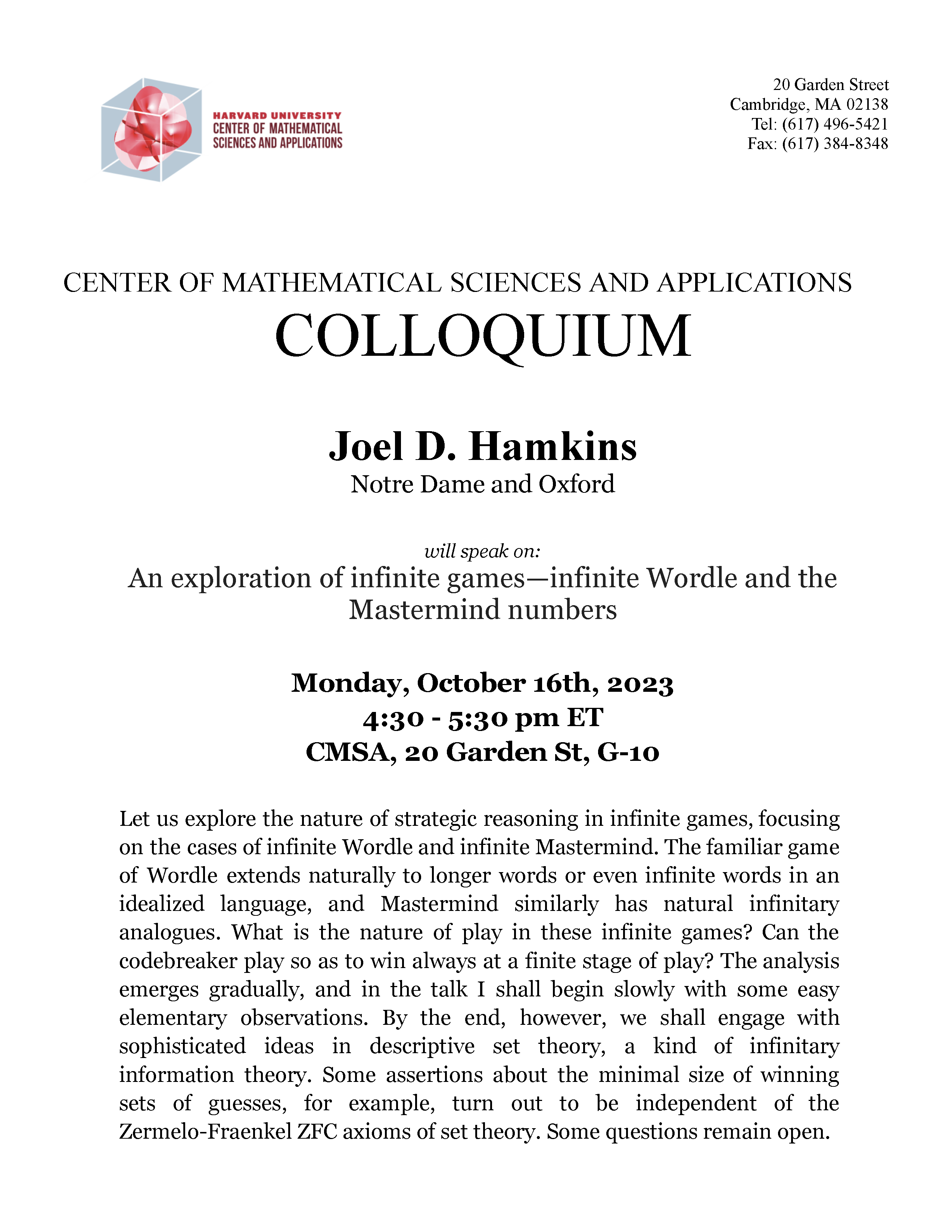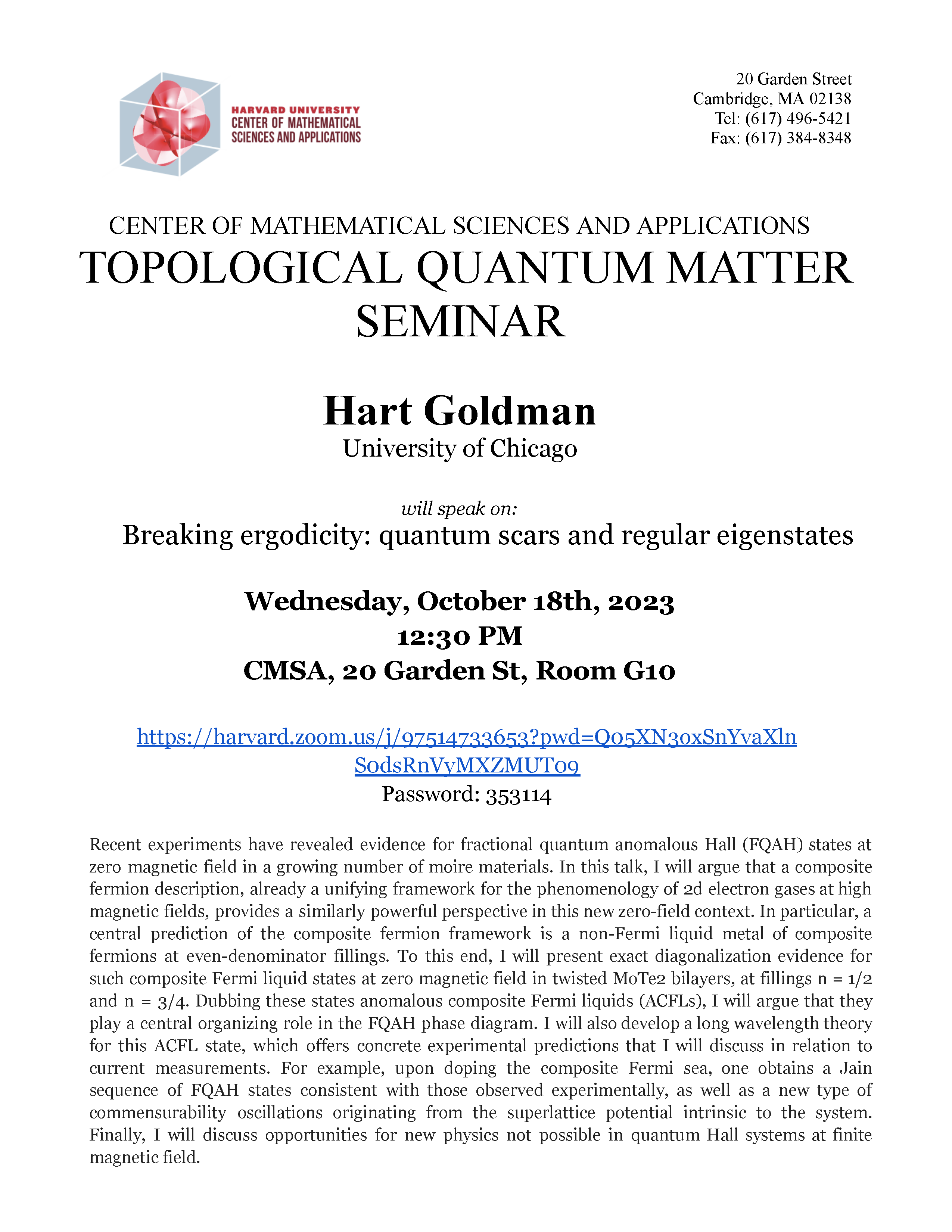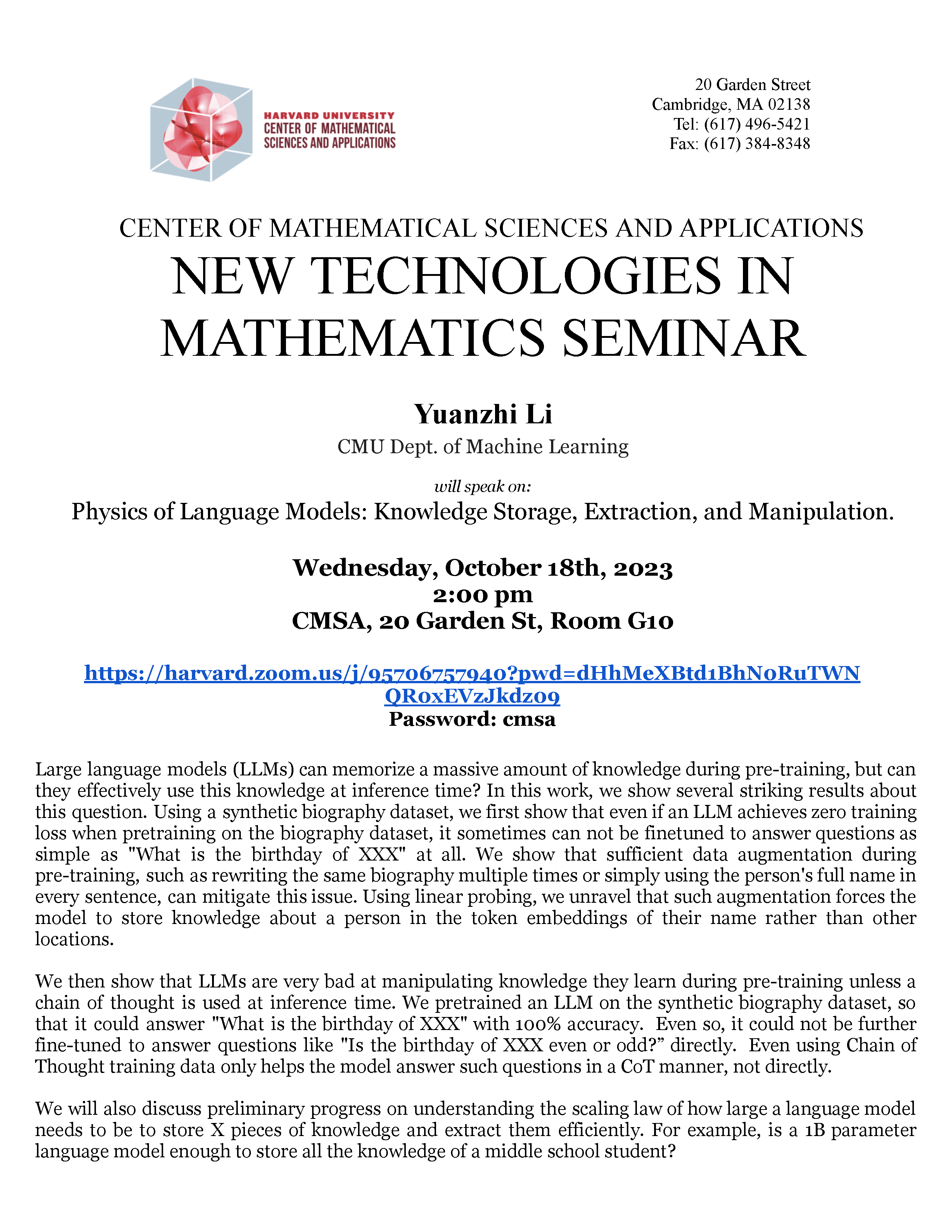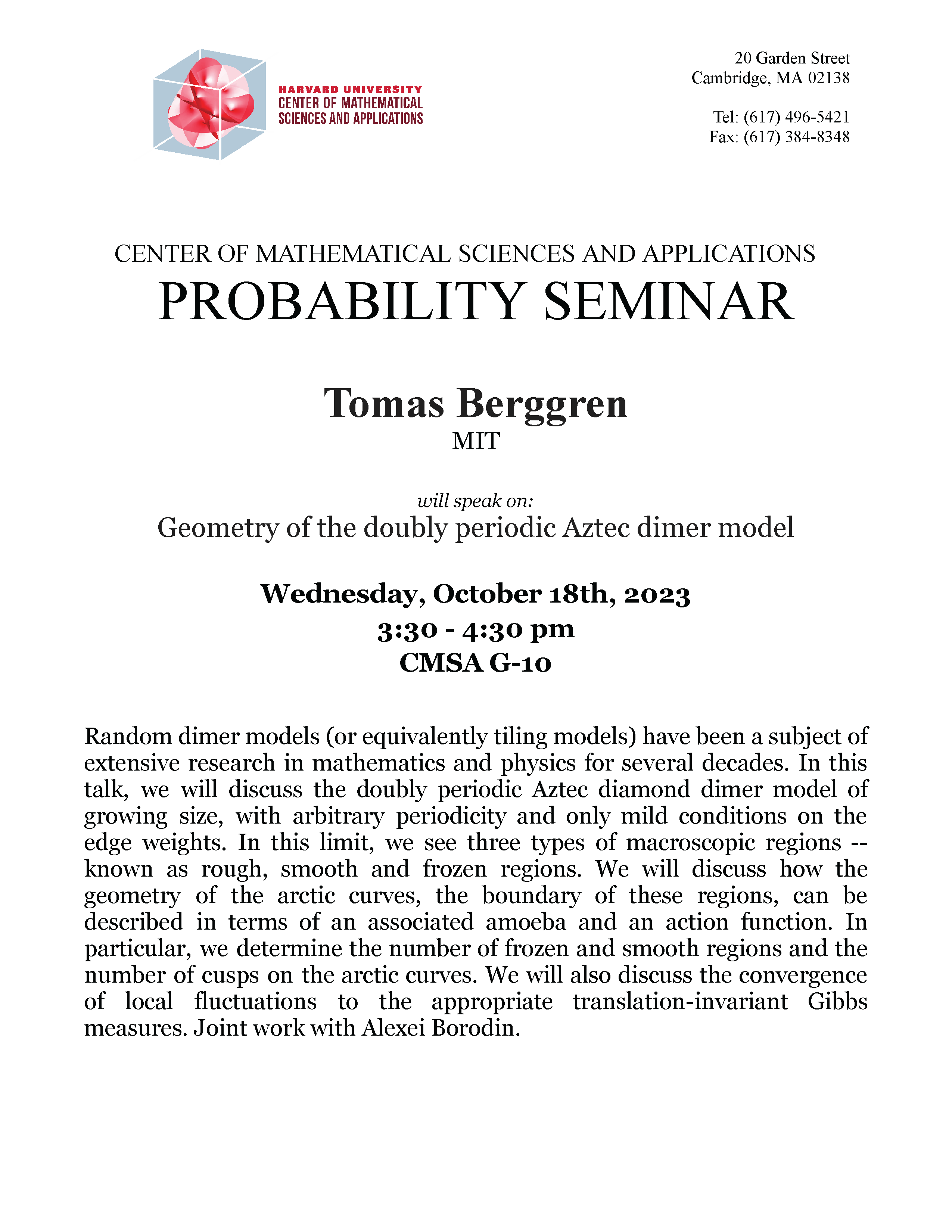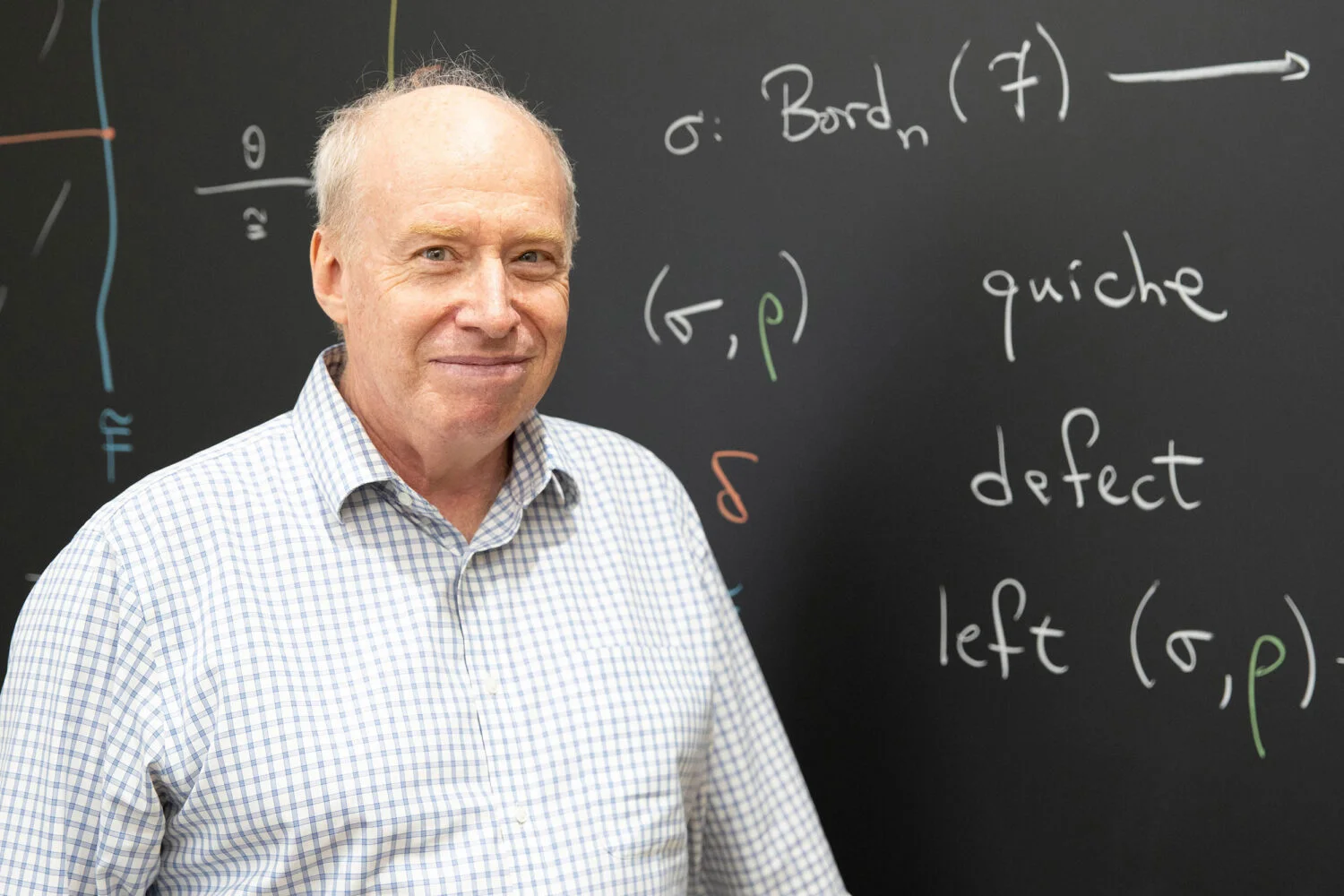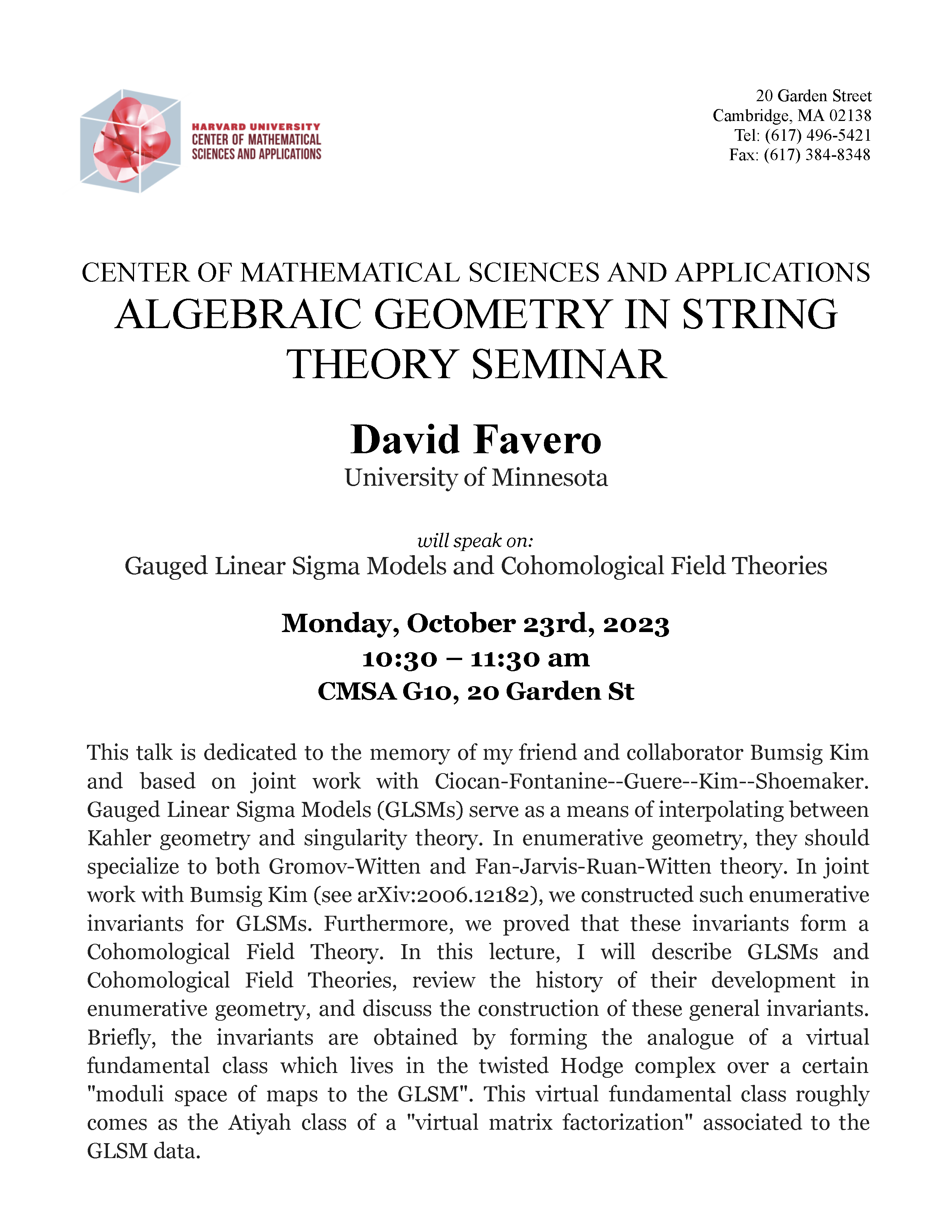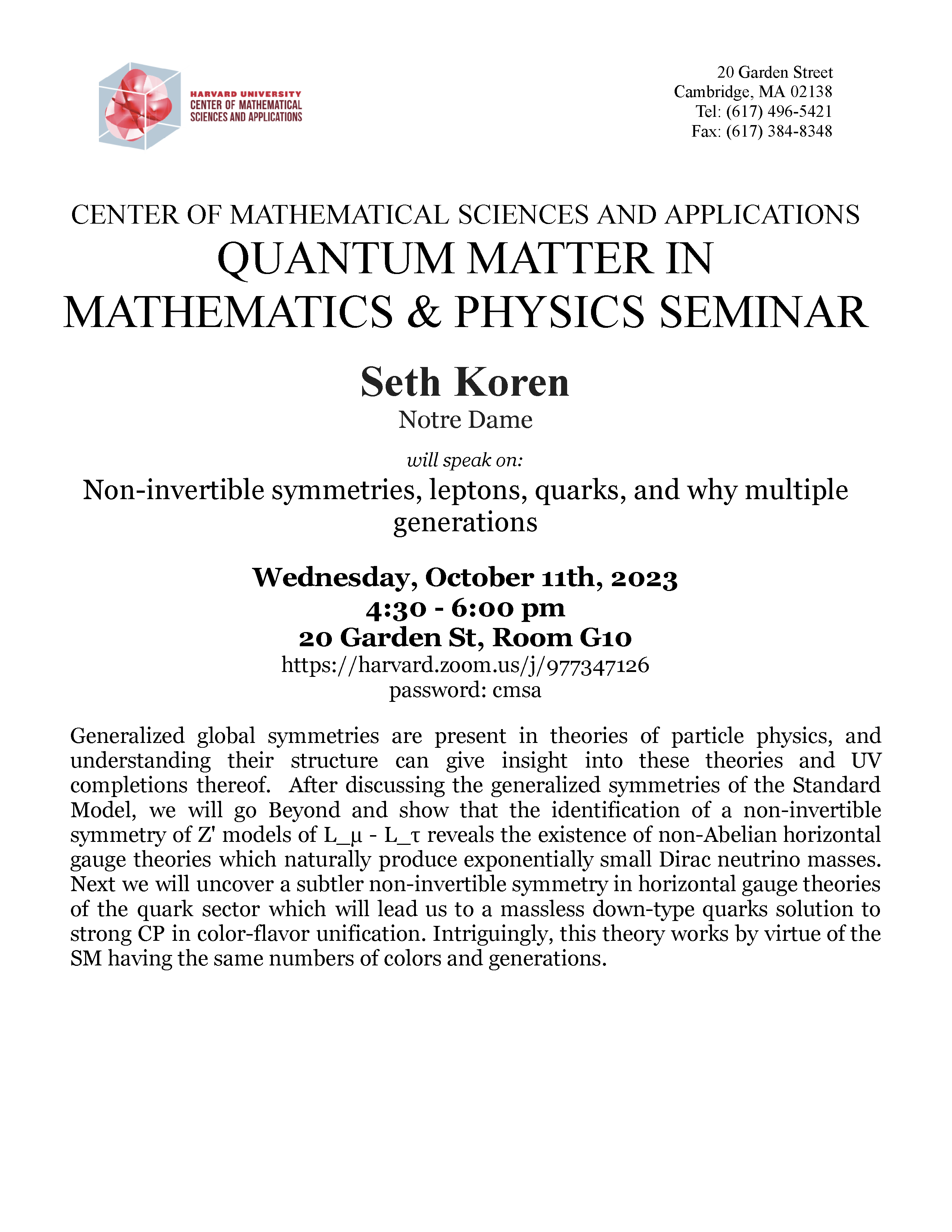
Non-invertible symmetries, leptons, quarks, and why multiple generations
CMSA Room G10 CMSA, 20 Garden Street, Cambridge, MA, United StatesQuantum Matter Seminar Speaker: Seth Koren (Notre Dame) Title: Non-invertible symmetries, leptons, quarks, and why multiple generations Abstract: Generalized global symmetries are present in theories of particle physics, and understanding their structure can give insight into these theories and UV completions thereof. After discussing the generalized symmetries of the Standard Model, we will go Beyond and show […]

